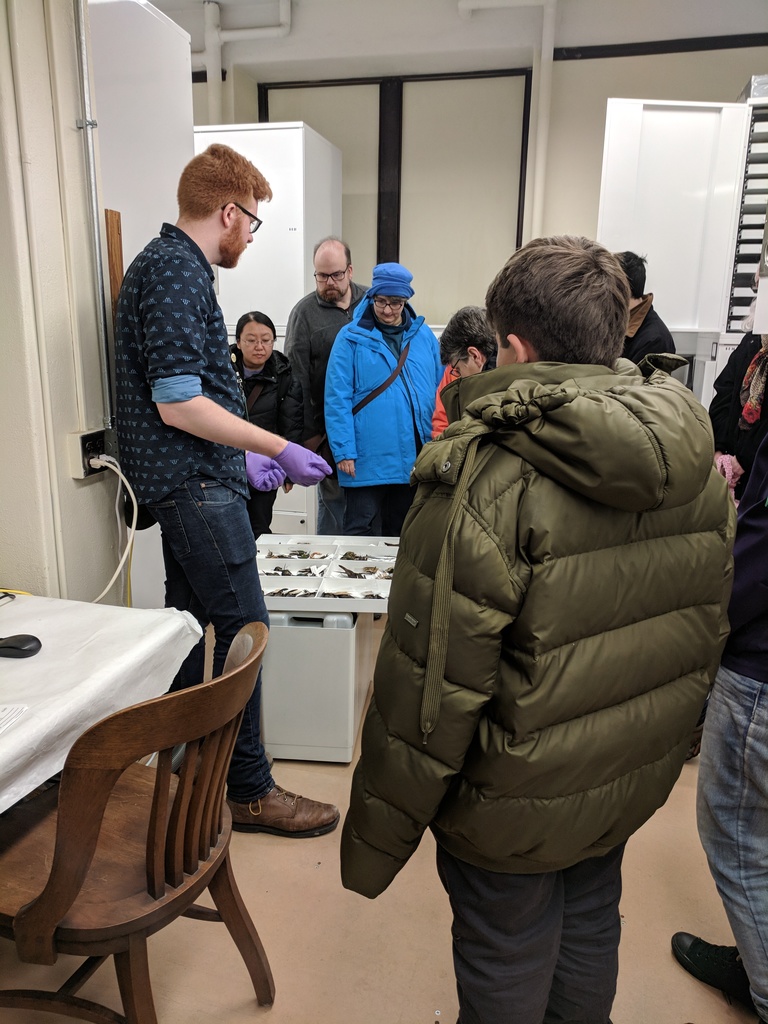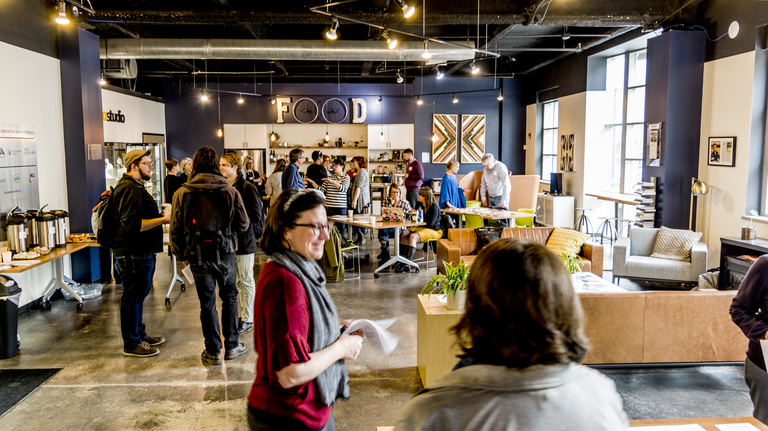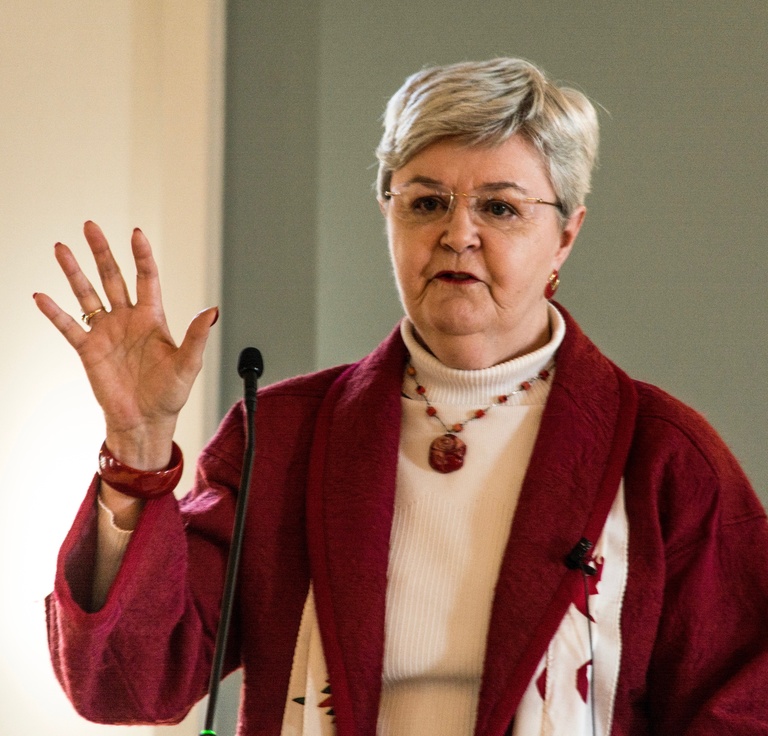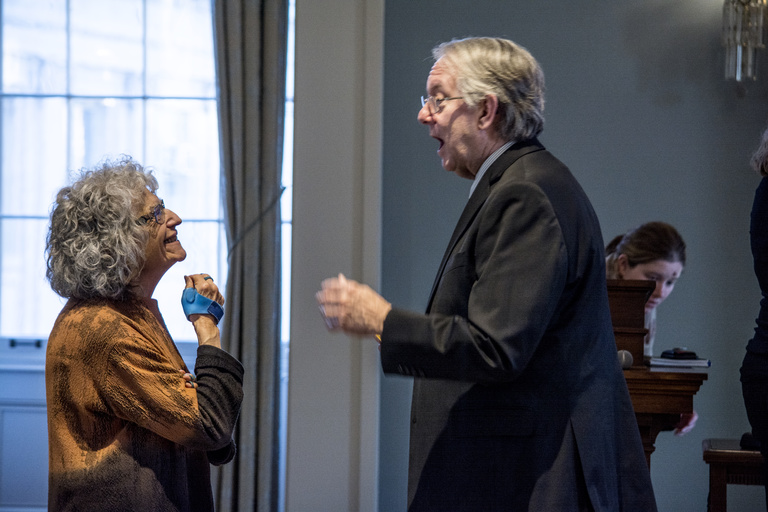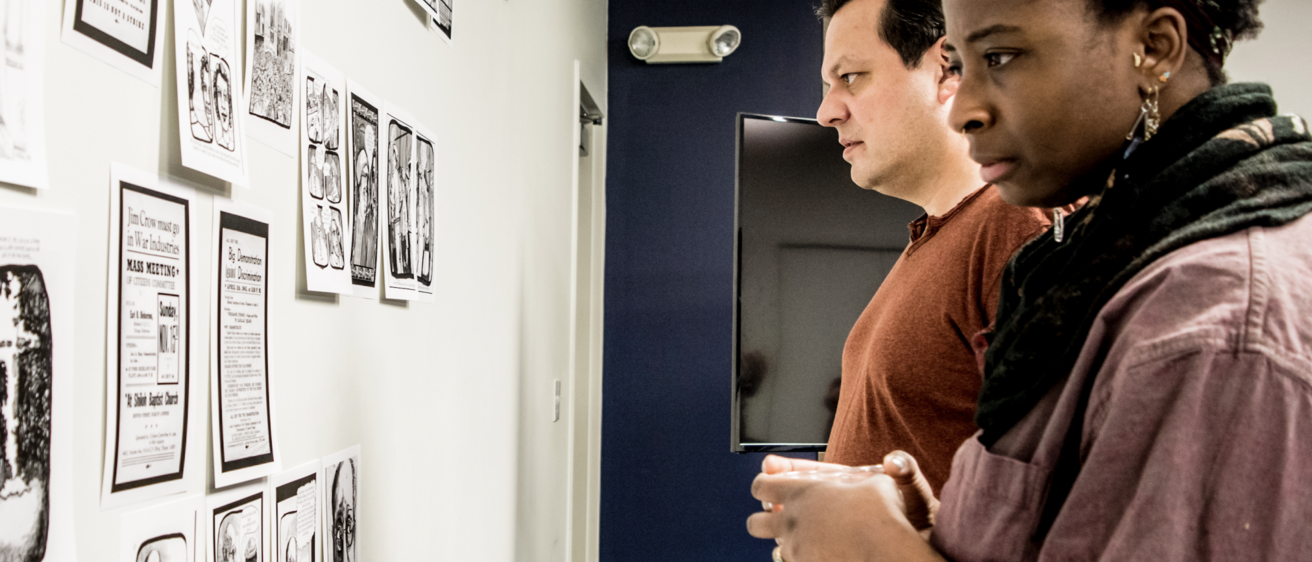The 2018 Obermann Humanities Symposium and Provost's Global Forum, "Against Amnesia: Archives, Evidence, and Social Justice," brought a dozen scholars, artists, and archivists to Iowa City to share their wide-ranging work. While our symposia are usually organized by two or three faculty members who propose topics, this time Obermann Director Teresa Mangum (Women's, Gender, & Sexuality Studies and English) took the lead with the help of a brilliant committee of faculty members and campus archivists: Paula Amad (Cinematic Arts), Amy Chen (English and American Literature Librarian in the University Libraries), Matthew Hannah (Obermann/Digital Bridges Postdoctoral Fellow), Marie Kruger (English), Jennifer Sessions (History), and Miriam Thaggert (English; Gender, Women's, & Sexuality Studies; and African American Studies).
This was also a special collaboration with International Programs and others on campus. We are deeply grateful for the Provost’s Global Forum Award from International Programs, which includes the Joel Barkan Memorial Keynote Lecture. We also received two Ida Cordelia Beam Visiting Professorships from the Provost's Office. The UI Center for Human Rights and The Andrew W. Mellon-funded Digital Bridges for Humanistic Inquiry project were co-funders. And we were grateful for support and assistance from the UI Libraries, especially Special Collections, the School of Music, and the Departments of Cinematic Arts, English, and History.
Given the emphasis on social justice, we had hoped that our speakers and filmmakers would be interested in experimenting with format. But we could not have anticipated the energy, creativity, and inspiration each would bring to campus. From the opening keynote, during which UI alum Trudy Peterson invited individuals to read aloud the articles of the International Bill of Human Rights (listen to Peterson's talk), to the closing session in which participants saw, heard, and felt the intersections of art, archives, and social justice, the symposium demanded our engagement with tough, demanding histories, memories, bodies, and laws.
Several graduate and undergraduate courses prepared students to participate fully in the symposium. Elizabeth Yale from History and the Center for the Book led a special Obermann "short course" for graduate students. Her description of the class captures the spirit of the symposium itself: "Over six weeks, students from across the humanities and social sciences (history, film studies, communications, American studies, and education) came together to explore archives as sources of meaning, power, and social justice. We started from the premise that archives are not transparent windows on to the past, but the products of human actions, embedded in concrete political and cultural contexts. We asked: What can archiving practices tell us about how power is distributed in society? What can they tell us about the connections between history, public memory, social justice, and political identities?"
Alea Adigweme (Communication Studies), a graduate student in the class (and pictured above), said that Against Amnesia was
"one of the most productive conferences I’ve ever been to. As an artist-scholar who works in a lot of different media, it was incredibly generative for me."
Noting that she took thirteen pages of notes, Adigweme reflected,
"I was able to engage with exemplars of scholarly and artistic strategies of assemblage, questioning, and decolonial deconstruction; see new-to-me-primary source materials relevant to my book project; pick up tips on how and where to look for items of interest to my own genealogical research in the Caribbean; make connections with local and national scholars whose research interests overlap with my own; and feel a sense of possibility, again, about the archival projects I have on my plate."
She also captured a feeling many of us shared—in this case, in response to Jacque Wernimont's fascinating, multi-sensory presentation—when she wrote, "Also, HAPTICS. Mind blown."
In their responses to the documentary The Violence of a Civilization Without Secrets and the subsequent discussion with one of the directors, Adam Khalil, Cinematic Arts graduate students Tom Jackson and Traci Hercher reflected,
"[The film and discussion] raised and spoke interesting questions regarding the co-opting and representation of indigenous archives and attendant controversies regarding ownership, secrecy, forgetting, museum display, cultural appropriation, and filmmaking with respect to ancestral custom." Praising the rich questions raised by this session and others, they asked, "Who is the archive for? Who are the exhibitions like the one in Khalil’s film for? The question and response also suggested the limitations of contemporary definitions of an archival inventory or database."
Hadley Galbraith (French) and Dalina Perdomo (Cinematic Arts) were especially taken with Elizabeth Maddock Dillon's discussion of a digital project she oversees, Colonial Histories and Digital Possibilities: The Digital Archive of the Early Caribbean, noting how it "recontextualizes the accounts, creating the possibility of showing moments of resistance, agency, and disproving the false claims of racial superiority."
Highlights and media:
- Trudy Huskamp Peterson: “Best When Used By: The Universal Declaration of Human Rights” [AUDIO]
- William Pretzer: “A Darker Presence: Interpretive Goals and Collecting Strategies in the National Museum of African American History and Culture” [VIDEO]
- Jacqueline Wernimont's HASTAC blog post
- WorldCanvass: Featured speakers
- Center for Human Rights course: "Archives and Activism," taught by Obermann HASTAC Graduate Scholar Kelsey McGinnis (UI Center for Human Rights and Music)
- Obermann Center Special Topics Graduate Seminar: "Archives, Power, and Social Justice," taught by Elizabeth Yale (History and Center for the Book)
- Cinematic Arts Graduate Seminar: "Digital Dust: Archives and New Media," taught by Paula Amad
- Digital Dust: New Media & Archives: May 1-3 Mini-conference of graduate research presentations from Paula Amad's Cinematic Arts course (in Adler)
- Iowa City Archives Crawl, a collaboration with UI Main Libraries, UI Museum of Natural History, Iowa City Public Library, and the State Historical Society of Iowa. More than 200 people, ranging from Boy Scout troops to lifelong local residents, turned out to interact with holdings in local museums, archives, and libraries.
- Aha! in the Archives: Our short video series featuring stories about “aha!” moments in the archives—times when a researcher or artist found something that altered a project or their way of thinking and feeling about a topic
